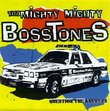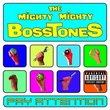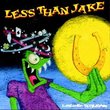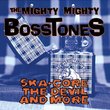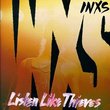| All Artists: Mighty Mighty Bosstones Title: Don't Know How to Party Members Wishing: 1 Total Copies: 0 Label: Umvd Special Markets Original Release Date: 5/18/1993 Release Date: 5/18/1993 Genres: Alternative Rock, Pop, Rock Styles: Hardcore & Punk, Ska Number of Discs: 1 SwapaCD Credits: 1 UPCs: 731451483622, 731451483646, 0731451483622 |
Search - Mighty Mighty Bosstones :: Don't Know How to Party
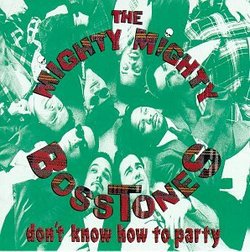 | Mighty Mighty Bosstones Don't Know How to Party Genres: Alternative Rock, Pop, Rock
|
Larger Image |
CD DetailsSimilarly Requested CDs
|
CD ReviewsClassic!!!! A. J. Pepin | Lino Lakes, Minnesota United States | 11/01/2004 (5 out of 5 stars) "This album is a CLASSIC. I'd even rate it as one of the top 50 albums of the nineties--easily (if not in the top 20). I still remember when this first came out--everyone complained of it's hard-rock/metal sound (mostly insular rude boys/girls, who in reality were musical elitists), but to me it was brilliant. Nate Albert is amazing in mixing so many different styles of guitar playing into one. The lyrics are great and the song-writing is great. BUY THIS ALBUM!" Ska & metal? huh? Andy | 09/21/1998 (3 out of 5 stars) "The Bosstones quite clearly were pioneering a new style (ska-core, dummy) on this record, and not striving to preset existing themes; but even the most innovative of style blenders (Red Hot Chili Peppers, Bad Brains and Fishbone leap to mind) have troubles keeping their music straight and even. For instance, Sublime does what the Bosstones do much better simply because they've had more time to practice with ska-core. OK, back to the album. The songs, while interesting from a musicologist's POV, careen confusedly all across the ska and metal landscape -- the Bosstones weren't sure at this point how to blend hardcore, metal and ska; all of which had very different tempos. At its worst, this album sounds like metal with horns, at its best, the combined styles shine together. But the low points come often enough that this record becomes more of a document of the birth of a genre rather than its holy grail."
|

 Track Listings (12) - Disc #1
Track Listings (12) - Disc #1